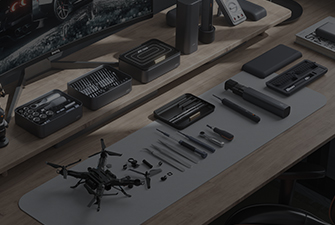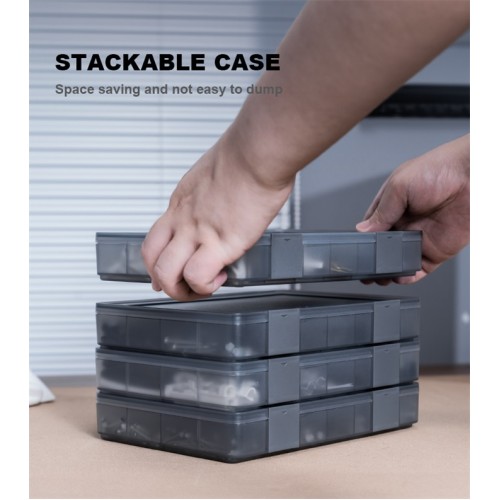
A complete toolbox is a maker's top resource for primary tasks like measuring planks and fastening screws accurately. This overview supplies skills to pick suitable tools and harness them effectively.
- Commence by gathering a core array of hand tools: hammer, screwdriver, wrench, pliers, saw, tape measure.
- Master the use and intended functions of each tool for distinct tasks.
- Build competency by practicing on projects and incrementally increasing challenge.
Bear in mind that time spent learning hand tools enhances your skillset. With correct expertise, tools act as extensions of your skills to complete challenging projects precisely.
Take Control of Your Tasks with Power Tools
Looking to accelerate projects? Explore power tools that fuse power with precise control. These critical tools can upgrade your craft for both experienced workers and hobbyists. From durable drills to accurate saws, power tools provide a variety of functions for construction tasks.
- Try cordless impact drivers to speed fastening and demolition operations.
- Utilize reciprocating saws for efficient, clean cuts across diverse materials.
- Boost woodcraft quality with high-power planers and jointers for accurate finishing.
Adopt power tools to quicken delivery and produce superior outcomes.
Precision Workflows Simplified
When fine detail matters, selecting proper measuring instruments changes outcomes dramatically. From standard scales to refined calipers, measuring instruments assist in producing precise, reliable results. Whether experienced pro or novice maker, learning these tools unlocks broader potential.
- Investigate the wide selection of measuring devices catering to varied needs.
- Learn the specific uses and benefits of each type of tool.
- Develop your skills in accurate measurement and application.
Tool Collections for Every Job
For professionals and DIYers alike, the proper toolset is crucial to complete projects. For diverse tasks including assembly and fastening, the perfect toolset supports accuracy and safety. To pick an ideal toolset, assess the types of tasks you'll perform regularly.
Do you require a broad toolkit or will a specialized kit be adequate? When requirements are clear, study product lines to assess features, durability and price points. Don't forget to read online reviews from other users to gain valuable insights before making your final decision.
With proper planning and review, you can choose a set that enables you to finish projects confidently.
Tool Upkeep: Keep Your Hand Tools Performing
Proper maintenance of hand tools is vital for consistent workmanship. Failing to care for tools results in dullness, breakage and poor work quality. Regular maintenance ensures your tools remain in top shape, providing you with years of reliable service. Clean tools after every job to eliminate dirt and residual debris. Keep tools stored dry to avoid rust and corrosion.
- Hone blades routinely with a sharpening stone or bench file.
- Use recommended oil on moving parts to cut friction and prevent wear.
- Inspect handles for cracks or damage and replace them as needed.

Following these basic care steps helps extend tool life and improve work efficiency and satisfaction.
Core Hand Tools for DIY Workshops
A complete workshop becomes an inviting workspace for enthusiasts and hobbyists. Although specialized equipment helps, a core set of hand tools is vital for many jobs. Necessary items are a good hammer, adjustable wrench and robust tape measure for precise measurements. Have an assortment of screwdrivers, capable pliers and a utility knife for cutting materials. An efficient saw delivers exact cuts and a level secures alignment and evenness.
- Key Hand Tools for DIY Workspaces

Power Tool Safety: A Practical Handbook
Power tools constitute robust equipment delivering significant power and productivity. However these devices necessitate comprehensive knowledge of protective protocols. Ignoring safety steps might result in major injuries. This resource illuminates power tool safety, supplying the knowledge to use tools responsibly.
Start out by learning your tools: read guides carefully and understand their protective features. Consistently wear suitable protective gear—safety glasses, ear protection and gloves. Perform regular maintenance on tools to guarantee dependable performance.
Always place safety first in any workshop. By following these guidelines, you can work with power tools safely and confidently.
Choosing Measuring Devices for Precision
For dependable measurements, the tool selection you make is vitally significant. A diversity of measuring devices is offered, each purpose-built for specific needs. Awareness of tool features helps you make better selection decisions. Assess attributes such as accuracy, resolution and measurement range while selecting instruments.
- To secure accurate length measurements, use a ruler or tape measure.
- For angles, a protractor is an indispensable tool.
- Analog or digital calipers suit accurate small-dimension measuring.
Choosing measurement tools prudently yields repeatable, reliable accuracy.
Choosing the Best Comprehensive Tool Set

Embarking on the journey of selecting a tool set can be both exciting and daunting. An extensive range of choices can produce selection fatigue. This expansive guide will help you identify the most suitable set for your use case.
First and foremost, consider the type of projects you'll be undertaking. Are you advanced or an amateur? Specific goal-setting simplifies choice.
- Mixing hand and power tools often yields the best, most efficient outcomes Combine hand and power tools strategically for successful and efficient project completion Combine hand and power tools strategically for successful and efficient project completion
- Emphasize primary essential items
- A quality hammer, plus mallet or sledgehammer options
- Screwdrivers plus wrench and plier collections form a crucial versatile set
- Tape and ruler for measurement tasks
- Leveling tools like level, plumb bob or transit
Evaluate the construction materials, budget and brand reputation before buying. Keep in mind a durable toolkit is a long-term investment.
DIY Made Simple: Using Tools Effectively
Embarking on your first DIY project can seem daunting. However, with correct tools and basic knowledge, even hard tasks become achievable. Begin with learning and getting familiar with your tools. Read the manuals instructions guides carefully and practice experiment test basic operations techniques actions in a safe environment. Put safety first as your primary priority. Wear suitable PPE including goggles, gloves and earplugs to shield yourself.
For tool purchases, quality and robustness should guide decisions. Invest in trustworthy makers whose products endure and serve well.
Ask for tips from experienced DIYers or professionals at nearby hardware outlets. Seek their advice for practical tips and insights on choosing ideal tools for requirements.
- Maintain blade sharpness since sharp tools are safer and easier to use.
- Organize and store tools to prevent damage and ensure longevity.
- Expand your skills and knowledge through DIY
Choosing Power or Hand Tools: A Practical Guide
For a project, deciding between power and hand tools might feel like a tough dilemma. Although heavy-duty power tools excel in speed and efficiency, hand tools remain valuable for finesse and small tasks. Use this quick overview to determine whether to choose power or hand tools for your project.
- Hand tools provide superior control for detailed assembly, carving and intricate repairs. Hand tools grant finer control and often present a more cost-effective choice.
- Power tools shine when you need to complete finish accomplish tasks quickly and efficiently, like cutting sawing slicing through wood, drilling boring penetrating holes, or sanding large surfaces. They greatly reduce physical effort and finish tasks much faster.
In the end, tool selection hinges on the specific task, your skill set and available budget. Combine hand and power tools strategically for successful and efficient project completion.
